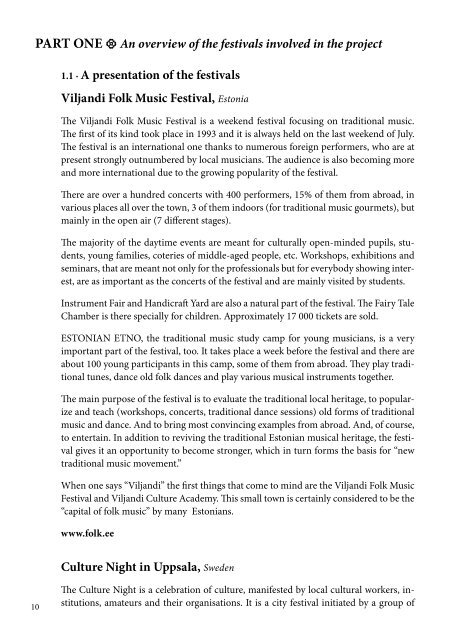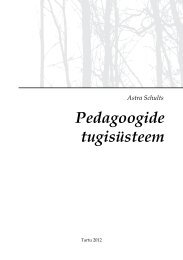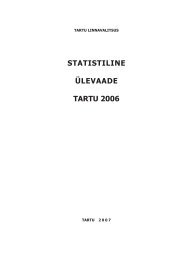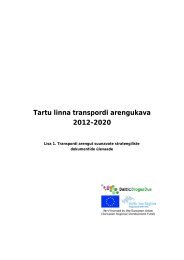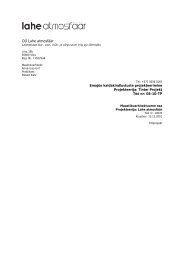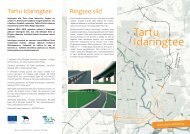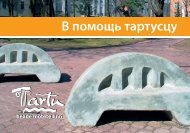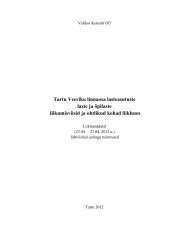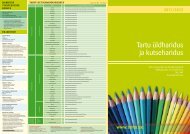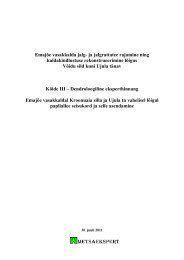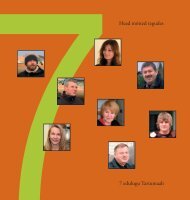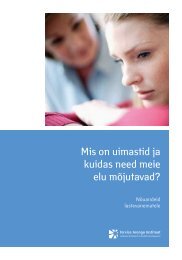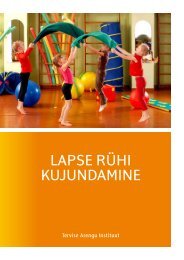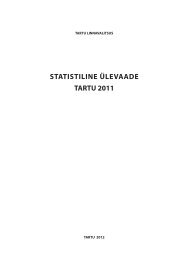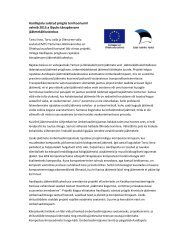Festivals - Tartu
Festivals - Tartu
Festivals - Tartu
You also want an ePaper? Increase the reach of your titles
YUMPU automatically turns print PDFs into web optimized ePapers that Google loves.
PART ONE An overview of the festivals involved in the project<br />
1.1 · A presentation of the festivals<br />
Viljandi Folk Music Festival, Estonia<br />
The Viljandi Folk Music Festival is a weekend festival focusing on traditional music.<br />
The first of its kind took place in 1993 and it is always held on the last weekend of July.<br />
The festival is an international one thanks to numerous foreign performers, who are at<br />
present strongly outnumbered by local musicians. The audience is also becoming more<br />
and more international due to the growing popularity of the festival.<br />
There are over a hundred concerts with 400 performers, 15% of them from abroad, in<br />
various places all over the town, 3 of them indoors (for traditional music gourmets), but<br />
mainly in the open air (7 different stages).<br />
The majority of the daytime events are meant for culturally open-minded pupils, students,<br />
young families, coteries of middle-aged people, etc. Workshops, exhibitions and<br />
seminars, that are meant not only for the professionals but for everybody showing interest,<br />
are as important as the concerts of the festival and are mainly visited by students.<br />
Instrument Fair and Handicraft Yard are also a natural part of the festival. The Fairy Tale<br />
Chamber is there specially for children. Approximately 17 000 tickets are sold.<br />
ESTONIAN ETNO, the traditional music study camp for young musicians, is a very<br />
important part of the festival, too. It takes place a week before the festival and there are<br />
about 100 young participants in this camp, some of them from abroad. They play traditional<br />
tunes, dance old folk dances and play various musical instruments together.<br />
The main purpose of the festival is to evaluate the traditional local heritage, to popularize<br />
and teach (workshops, concerts, traditional dance sessions) old forms of traditional<br />
music and dance. And to bring most convincing examples from abroad. And, of course,<br />
to entertain. In addition to reviving the traditional Estonian musical heritage, the festival<br />
gives it an opportunity to become stronger, which in turn forms the basis for “new<br />
traditional music movement.”<br />
When one says “Viljandi” the first things that come to mind are the Viljandi Folk Music<br />
Festival and Viljandi Culture Academy. This small town is certainly considered to be the<br />
“capital of folk music” by many Estonians.<br />
www.folk.ee<br />
Culture Night in Uppsala, Sweden<br />
10<br />
The Culture Night is a celebration of culture, manifested by local cultural workers, institutions,<br />
amateurs and their organisations. It is a city festival initiated by a group of


